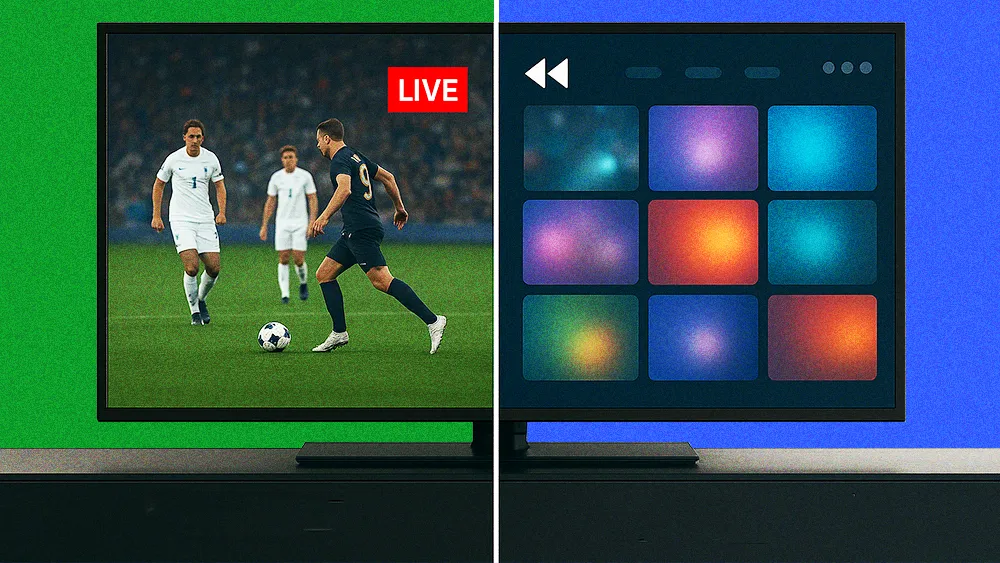The long-stable financial model for live sports is beginning to crack. A growing tension between climbing media rights fees and a shrinking traditional audience creates an opening for tech giants with massive balance sheets and different business models to capitalize. This dynamic is set to completely alter the sports media world and brings streaming platforms one step closer to surpassing linear TV.
That’s the view of Michael Beach, Co-Founder and CEO of holding company 1903 Group and previous Founder and CEO of Cross Screen Media, a media analytics and software company. As the author of the book "Screen Wars" and industry newsletter "State of the Screens," Beach's insights have been featured in The Wall Street Journal and The New York Times.
He predicted the industry is on the verge of a significant moment when a major streaming platform will draw a larger audience for a top-tier game than traditional broadcast television. He believed such an event will ignite a lasting change in the market, amplified by the different stakes for each side. For traditional broadcasters, top-tier sports are critical to their business model, while, for tech platforms, they are a tool for user engagement.
- The flip moment: Once a streamer proves it can deliver a bigger audience, the financial disparity will create what Beach called an unfair fight. "I think we're pretty close to a Netflix or an Amazon actually delivering a bigger audience than linear TV for an ad hoc game," he said. "Once the tech companies do that, and they have 100 times the money, things are going to change very fast. It's going to blow people's minds."
- A tale of two teams: The financial pressure is contributing to a widening gap between teams, a situation that forces them to seek out new, more sustainable revenue models. Nowhere is this clearer than in the disparity between franchises with lucrative, long-term TV contracts and those without. "The only way the Dodgers can dominate is because they have a $335,000,000 a year guaranteed payout from Spectrum for their local TV deal," Beach said. "I'm a Cincinnati Reds fan, and they make about $50,000,000 a year on their deal, and it might get canceled next year. They don't know."
While there's some debate whether undercounted streaming viewership can justify the costs, Beach said it misses the point. The real problem is the widening gap between flat audience growth and soaring rights fees—a model that puts even established media brands at risk.
- Bubble trouble: "The viewership for the NFL is not setting records," he said. "It's holding its viewership, but the rights are going up 100% per deal." While some in the industry hope that streaming platforms will provide a simple fix, that outcome is complicated by widespread subscription fatigue.
- Free for all: Instead, some are exploring a different path. Beach points to one team that, after being dropped by its regional sports network, chose to change the revenue model entirely. "The most interesting thing in sports is what the Dallas Stars are doing," he said. "They launched their own free streaming service and will make money selling ads." To illustrate how lucrative this could be for a team, Beach pointed to NFL ad sales. "An NFL game makes $4 an hour roughly in ad revenue on TV, it could be $6 or $7 with smart ads. If what the Stars are doing works, it will change everything."
By delivering a more personalized fan experience with precision-targeted advertising, this new model creates a less intrusive environment for viewers while unlocking revenue from a new class of advertisers who could never afford traditional TV. "While I was watching football on Amazon Prime, I was looking online for an electronic doorbell," Beach said. "Then a day later, I saw an ad about an electronic doorbell. That doorbell company could never afford to advertise on linear TV in such a tailored way. It's stuff like that that's going to solve this."
For many observers, the move from linear to streaming is part of a larger competition for audience attention. This new competitive environment is prompting media companies to rethink the entire fan experience. As Beach concluded, the standard for quality has been raised. "Competition is everywhere," he said. "Your viewer could leave ESPN and go watch TikTok. Your competitive set is now immense, and fans just won't put up with a mediocre experience."

